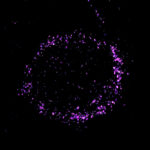Managing your child’s treatment-related nausea

Treatment-related nausea is an unpleasant side effect that can occur before, during, or after cancer treatments such as chemotherapy and radiation. Antiemetic medications are typically used to treat nausea and vomiting, but there are other strategies that can help.
Dr. Kristen Uhl, of Pediatric Psychosocial Oncology at Dana-Farber/Boston Children’s Cancer and Blood Disorders Center, specializes in pediatric pain management and coping with chronic illness. She recommends trying the following strategies with your child to help alleviate nausea.
Lifestyle changes
- Eat small meals throughout the day, about every three hours.
- Choose cold or room-temperature foods.
- Try drier foods (like crackers, pretzels, or cereal).
- Avoid spicy, sweet, or greasy foods.
- Stay away from foods with strong smells.
- Avoid lying down immediately after meals.
- Drink clear fluids between meals.
Relaxation techniques
- Try belly breathing (diaphragmatic breathing).
- Try guided imagery, which promotes relaxation by focusing on memories, dreams, or fantasies to refocus attention away from a stressful situation. A clinician has the patient choose a meaningful image or idea. During a 10- to 20-minute session, the patient is guided to hear, see, taste, smell, touch, or move while thinking about an imagined activity.
- Use progressive muscle relaxation.
- Consider hypnosis.
- Try biofeedback.
- Download phone (or tablet) relaxation apps.
Complimentary strategies
- acupuncture or acupressure
- aromatherapy
Get more resources and guidance for helping your child cope with cancer treatment from Parents Together.
Learn more about childhood cancer at the Dana-Farber/Boston Children’s Cancer and Blood Disorders Center.
Related Posts :
-

A new druggable cancer target: RNA-binding proteins on the cell surface
In 2021, research led by Ryan Flynn, MD, PhD, and his mentor, Nobel laureate Carolyn Bertozzi, PhD, opened a new chapter ...
-

Forecasting the future for childhood cancer survivors
Children are much more likely to survive cancer today than 50 years ago. Unfortunately, as adults, many of them develop cardiovascular ...
-

Pediatric high-grade gliomas: Research reveals effective targeting with avapritinib
Pediatric high-grade gliomas, particularly H3K27M diffuse midline gliomas (DMG), are aggressive malignant brain tumors with a poor prognosis. ...
-

Blood across our lifetimes: An age-specific ‘atlas’ tells a dynamic story
The stem cells that form our blood, also known as hematopoietic stem cells (HSCs), are with us throughout our lives. ...





